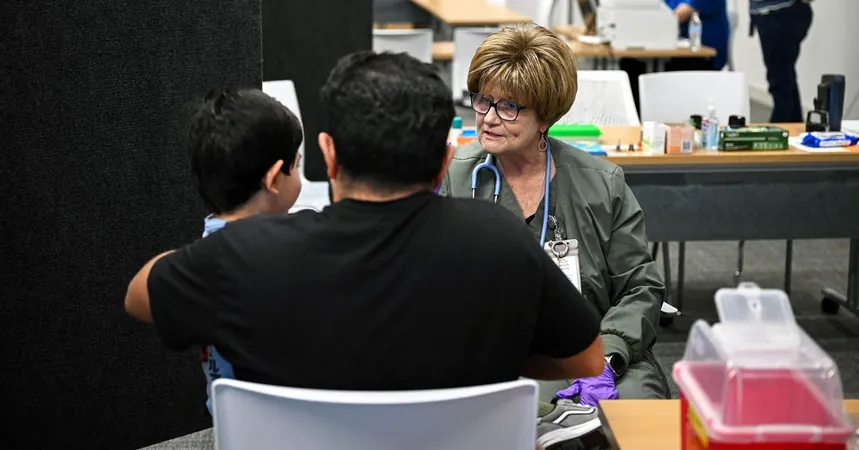
Unraveling the Gut-Brain Connection: Hidradenitis Suppurativa in Kids Linked to Microbiome Changes and Mental Health Issues
2025-05-28
Author: Wei
New Insights into Pediatric Hidradenitis Suppurativa
A groundbreaking study published in *JAMA Dermatology* sheds light on how pediatric patients suffering from hidradenitis suppurativa (HS) may be experiencing significant gut microbiome dysregulation, potentially leading to mental health disorders. This chronic inflammatory skin condition manifests in painful lesions commonly found in sensitive areas such as the armpits, groin, buttocks, and breasts. When these painful nodules rupture, they produce abscesses that drain fluid and pus, which can result in severe scarring. Frequent flare-ups demand urgent medical attention to prevent further complications.
The Link Between Gut Health and Skin Conditions
In this prospective observational study, researchers analyzed the gut microbiomes of eight pediatric HS patients and eight matched controls. Notably, both hidradenitis suppurativa and inflammatory bowel disease (IBD) share not only clinical manifestations but also genetic and immunologic features. This means that both conditions can exhibit symptoms in the skin and gut, characterized by sterile abscesses and scarring.
Key Findings from the Study
The team collected fecal samples and discovered interesting patterns: while there were no significant differences in beta diversity, patients with HS showed a decrease in alpha diversity, indicating a less diverse gut microbiome compared to controls. Furthermore, pediatric patients with HS exhibited increased levels of the Ruminococcus and Clostridium genera, alongside Bacteroidetes phyla. Strikingly, all pediatric patients had the beneficial bacteria *Bifidobacterium adolescentis*, which was absent in all adult participants.
The Gut-Brain Axis and Mental Health Implications
*Bifidobacterium adolescentis* is notably linked to anxiety and depression, suggesting that gut microbiome imbalances may influence mental health through neural connections from the gut. The study's authors highlight the importance of incorporating mental health screenings in future studies to fully understand this relationship, especially as unaddressed mental health challenges could lead to substance abuse as patients seek to manage pain.
A Call for Further Research
Research findings indicate a clear need for deeper investigations into the gut microbiome's role in pediatric hidradenitis suppurativa. The authors conclude that the dysregulation observed in gut health could extend to pediatric HS patients, signaling an urgent call for further studies to bridge these critical gaps. With the potential overlap between microbial health and mental wellness, addressing these issues could greatly improve the lives of affected children.



 Brasil (PT)
Brasil (PT)
 Canada (EN)
Canada (EN)
 Chile (ES)
Chile (ES)
 Česko (CS)
Česko (CS)
 대한민국 (KO)
대한민국 (KO)
 España (ES)
España (ES)
 France (FR)
France (FR)
 Hong Kong (EN)
Hong Kong (EN)
 Italia (IT)
Italia (IT)
 日本 (JA)
日本 (JA)
 Magyarország (HU)
Magyarország (HU)
 Norge (NO)
Norge (NO)
 Polska (PL)
Polska (PL)
 Schweiz (DE)
Schweiz (DE)
 Singapore (EN)
Singapore (EN)
 Sverige (SV)
Sverige (SV)
 Suomi (FI)
Suomi (FI)
 Türkiye (TR)
Türkiye (TR)
 الإمارات العربية المتحدة (AR)
الإمارات العربية المتحدة (AR)